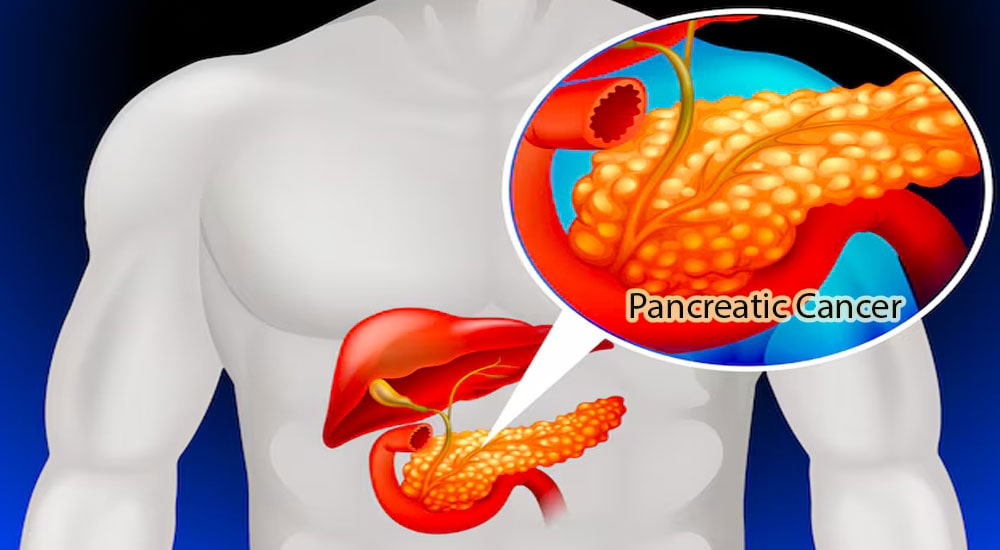
Pancreatic cancer is a cancer of the pancreas, a vital organ located in the abdomen that helps in digestion. The detection of pancreatic cancer is difficult due to its location. The symptoms may include fatigue, nausea, lack of appetite, bloating and jaundice. Chemotherapy, radiation therapy and surgery are used to treat pancreatic cancer. However, the survival rates for pancreatic cancer are low because this cancer is difficult to detect during its early stages.
What is pancreatic cancer?
The pancreas is a vital organ that produces enzymes, your body needs to digest carbohydrates, fats, and proteins. This organ also produces essential hormones like insulin and glucagon that help control blood sugar levels and metabolism.
Pancreatic cancer occurs when the cells in the pancreas begin to mutate or multiply in an uncontrollable way which forms a tumour. In most cases, pancreatic cancer starts in the ducts in the pancreas.
What are the types of pancreatic cancer?
There are mainly two types of pancreatic cancer, such as:
What are the symptoms of pancreatic cancer?
Unfortunately, pancreatic cancer does not cause any symptoms during its early stages. The symptoms typically occur once the tumour begins to impact the other organs in the digestive system. The most common symptoms may include:
What causes pancreatic cancer?
The exact cause of pancreatic cancer is still unknown. However, doctors have identified certain potential risk factors. The risk factors for pancreatic cancer may include:
How is pancreatic cancer diagnosed?
As mentioned earlier, diagnosing pancreatic cancer in the earlier stages is difficult because the doctors cannot feel the pancreas during the routine exam. Your doctors may suspect pancreatic cancer if you have been recently diagnosed with diabetes or pancreatitis.
Your doctor may order the following imaging tests to detect pancreatic cancer:
They may also order blood tests, such as a pancreas blood test and tumour marker. Genetic testing may also be used to determine the type of cancer and its treatment.
Although the survival rates for pancreatic cancer are low, the cancer can still be treated with radiation therapy, chemotherapy, targeted therapy, or surgery. The only way to completely cure pancreatic cancer is the total removal of the pancreas. However, the doctors only recommend it if they think they can remove all of the cancer.